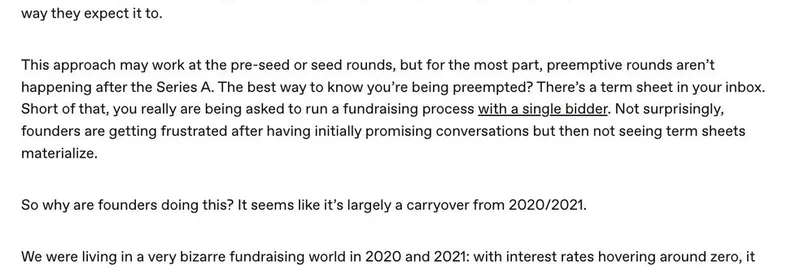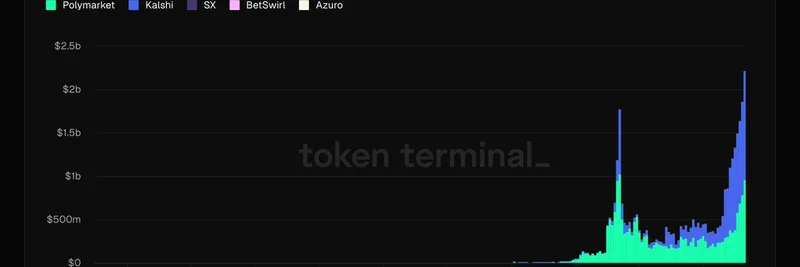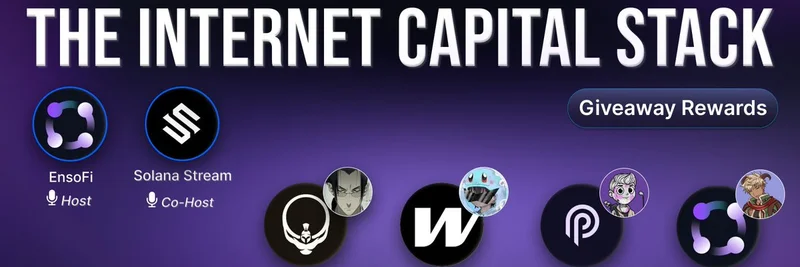If you're a founder in the crypto space, navigating the fundraising landscape can feel like a wild ride. Recently, Arianna Simpson from a16z crypto dropped some real talk in a post that's making waves. Shared via a tweet from the a16z crypto account, her article titled "Stop trying to get preempted" calls out a common mistake many startup founders are still making in 2025. Let's break it down and see what it means for blockchain practitioners, including those hustling in the meme token world.
The Problem with the "Not-Raising-Raise" Playbook
Back in the crazy days of 2020 and 2021, the venture capital scene was on fire. Interest rates were basically zero, money was flowing like water from a government tap, and IPOs were popping off left and right. In that environment, founders didn't need to formally announce they were raising funds. Instead, they'd casually drop impressive metrics in meetings, hoping investors would jump in with a preemptive offer – that's when an investor slides a term sheet your way before you've even started a proper fundraising round.
Simpson points out that this opportunistic approach, often called the "not-raising-raise," worked because deals closed in days or even hours. Founders avoided looking desperate by not preparing polished decks or making direct asks. If you were getting preempted, it signaled your startup was hot stuff, and you'd often land oversized rounds at sky-high valuations.
But fast forward to now, and that playbook is falling flat. Many founders are still trying it – taking unstructured meetings, hinting at big numbers, and waiting for that magical term sheet to appear. Spoiler: It usually doesn't. Instead, what happens is you're essentially running a fundraising process with just one interested party, leading to frustration when things fizzle out.
Why This Shift Happened and What Changed
The root of this hangover? The bizarre ZIRP (zero-interest-rate policy) era of 2020/2021 created unnatural dynamics. Stocks were soaring, fundamentals were hard to pin down, and everyone was getting preempted. Saying you were fundraising outright? That was "low status" – a sign no one was beating down your door.
Then came the 2022/2023 crash. The bottom dropped out, and deals slowed to a crawl. No playbook worked well during that downturn. Today, the VC market is bouncing back – deals are happening again – but it's not the free-for-all it once was. Outside of hot pockets like AI or certain web3 niches, the old tricks aren't cutting it.
For meme token creators and blockchain builders, this is crucial. Meme projects often start with community hype rather than VC bucks, but if you're scaling to a full-fledged protocol or dApp, you might need institutional funding. Relying on casual chats won't get you there in this market.
Back to Basics: The Power of Structured Fundraising
Simpson's big advice? Rediscover the "lost art" of traditional VC pitching. Before 2020, fundraising was intentional and structured, especially post-seed. You'd wait until your metrics were solid, craft a killer deck, practice your pitch, and target your top 5-10 firms.
Key elements of this approach:
- Start small on round size: Quote the lower end of what you need to draw in multiple investors, creating competition that bids up your valuation.
- Focus on traction: For series A and beyond, it's about numbers, not just story.
- Be deliberate: Kick off the process when you're ready, not opportunistically.
Founders using this method are landing multiple term sheets from top-tier VCs, pushing valuations higher through bidder competition. In contrast, those sticking to the preemptive hope are seeing dragged-out timelines – even if their fundamentals are strong.
In the meme token space, this translates to treating your project like a serious business when seeking funds. Sure, viral memes can bootstrap liquidity, but for longevity, a structured pitch showing user growth, tokenomics, and roadmap can attract serious investors.
Lessons for Crypto and Meme Token Founders
Arianna's post is a wake-up call for the crypto community. The market's robust, but smarter strategies win. If you're building in blockchain – whether it's DeFi, NFTs, or meme coins – don't bank on getting preempted. Run a proper process to maximize your chances.
For more details, check out the full article on a16z crypto's site or the original tweet thread.
What's your take? Have you tried the opportunistic approach in crypto fundraising? Share in the comments – let's discuss how this applies to meme tokens and beyond.




